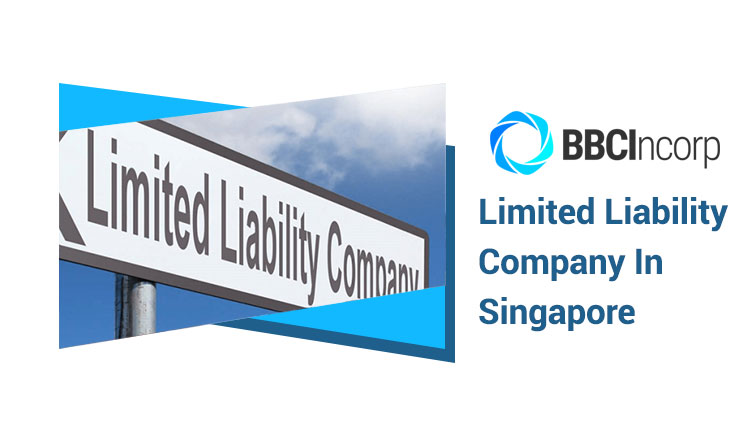
Limited liability company in Singapore is the most common type of company, among other types of business entities. This type of company can ensure you a great deal of safety due to its separate legal status and its members’ limited liability. There’s more! A limited liability company in Singapore can also bring you many tax advantages since it can apply for many special tax-cut schemes.
The process of setting up a limited liability is fast and simple. Keep on reading to eventually find out how you can establish one in Singapore!
1. How to Define a Limited Liability Company in Singapore
Limited liability company in Singapore, or LLC for short, is owned by at least one shareholder (except for public company limited by guarantee) and has the following characteristics:
Legal status
A limited liability company is deemed a separate legal entity, meaning it has distinctive legal status from its owners. Due to this reason, an LLC is able to:
- Sue or be sued under its own name;
- Acquire, own, hold, develop and dispose property under its name.
Limited liability
There is a clear distinctive line between ownership and running a limited liability company in Singapore. In particular, it is owned by shareholders but managed by a board of directors. Keep in mind that a shareholder can also register as a director.
Due to the separate legal status, the company itself is responsible for the debts and liabilities incurred during its course of operation. Shareholders, on the other hand, are shielded from these problems. Particularly, they have liabilities limited only to their share-capital contributions.
2. Types of Limited Liability Company in Singapore
There are several types of limited liability companies in Singapore, including:
Private limited company, or Pte Ltd company, is the most chosen option for business incorporation in Singapore. The company is privately held by shareholders who can be either individuals or body corporate.
Essentially, the maximum number of shareholders stands at 50. Beyond 50 shareholders, a private limited company will go public.
Exempt private company is any private company that has no more than 20 shareholders, and none of them is a corporation. The main benefit of this business type is lessening compliance requirements.
Public company limited by shares: it is a company that can have more than 50 shareholders. What special about this business type is that it can be listed on the stock exchange and able to raise capital by issuing shares or debentures to the public.
This business form is mainly profit-oriented, in which shareholders only hold liabilities limited to their shares.
Public company limited by guarantee: it is for non-profit purposes in which there are members but not shareholders. Examples of this business type are charities, professional associations, or companies carrying out non-profit activities.
3. Advantages and Disadvantages of a Limited Liability Company in Singapore
Based on the nature of LLC, here are the benefits and drawbacks of such business type:
Advantages
- Separate legal status: an LLC can own property and enter a contract with its owned name and identity.
- Limited liability: shareholders have liabilities limited only to their shares and they are not personally responsible for the business’s debts.
- Perpetual succession: changes of members do not affect the existing, rights and liabilities of an LLC. A company has perpetual succession until wound up or struck off.
- Ownership transfer: ownership of an LLC can be transferred partly or wholly by transferring shares from one to another.
- Tax benefits: an LLC can enjoy many beneficial tax schemes and have many legal ways to reduce its income tax, such as the partial tax exemption scheme for companies.
Disadvantage
The main drawback of an LLC is a considerably large number of compliance requirements. Some examples are filing annual returns with ACRA, filing tax returns with IRAS, holding Annual General Meeting, maintaining accounting and other related documents.
4. How to Set Up a Limited Liability Company in Singapore
ACRA is the government agency responsible for company registration in Singapore. The first thing you need to do is to finalize what type of limited liability company to incorporate. Then, you have some preparation to do:
4.1. Requirements to Register a Limited Liability Company in Singapore
You need to prepare some documents containing the following information:
- A proposed business name for your company
- A brief description of the business activities
- Details of the company’s registered address in Singapore
- Particulars of shareholders and other related papers
- Particulars of directors*
- Company’s constitution, which can be an available model or a customized one.
*It regulated in Section 145 in the Companies Act that every company must have at least one director who is:
- Ordinarily resident in Singapore
- 18 years old or above
- Of full legal capacity.
4.2. The Process of Registering a Limited Liability Company in Singapore
The process will be done online via BizFile portal. However, if you are a foreign investor and do not have a login account (SingPass), you cannot directly register for a business entity in Singapore via BizFile portal. In this case, you can still legally opt for Singapore company incorporation services from licensed service providers.
The process comprises the following steps:
Step 1: Reserving the company name
The company’s name needs to be proposed and subsequently approved by ACRA in order to continue the formation process. The proposed name must be unique and not identical to that of other businesses.
At this first stage, you also need to fill in information about your company’s business activities and finalize your business type.
The processing time is rather quick, within days, or sometimes only within hours. However, it can be extended to a few weeks if the business name needs further review and approval from another government agency.
Once the name is approved, you can carry on the process. The company name then can be reserved for up to 4 months.
Step 2: Registering the company
The next step is to fill in and submit other information about your company to ACRA, mainly about share details and other members. The processing time for company registration may take a few days, sometimes only a few hours, after the application is successfully submitted.
The outcome will be informed to you via email. If the registration is approved, there will be an attached Unique Entity Number (UEN) and a URL to download your business profile. The email, in this case, can act as an official certificate of incorporation in Singapore. Congratulations on your new company!
5. Compliance Requirements for a Limited Liability Company in Singapore
After the registration, your company will need to appoint the following officers:
- Company secretary: a secretary must be appointed within 6 months from the incorporation date and this position must not be left vacant for more than 6 months.
- Auditors: every company must appoint an auditor within 3 months from the incorporation date unless it is exempted from audit requirements.
Furthermore, limited liability companies in Singapore must comply with other requirements regulated by different government agencies, such as:
- Choosing financial year-end
- Maintaining statutory registers
- Holding Annual General Meeting for companies limited by shares
- Filing annual return with ACRA annually
- Filing tax return with IRAS annually
6. Conclusion
Limited liability company, especially private limited company, is the most chosen registration option among the most common types of companies and businesses in Singapore. The main reasons are mainly due to the business’s separate legal status, members’ limited liabilities, and eligibility to many beneficial tax schemes.
The process of setting a limited liability in Singapore comprises reserving the business name and registering the company. After incorporation, an LLC needs to comply with a considerable number of different requirements.
Should you have any further questions on this topic, or should you have made up your mind to start your own business in Singapore, contact BBCIncorp now! BBCIncorp is your trusted company formation service provider in Singapore!
Disclaimer
While BBCIncorp strives to make the information on this website as timely and accurate as possible, the information itself is for reference purposes only. BBCIncorp would like to inform readers that we make no representation or warranty, express or implied. Feel free to contact BCCIncorp’s customer services for advice on specific cases.
- 1. How to Define a Limited Liability Company in Singapore
- 2. Types of Limited Liability Company in Singapore
- 3. Advantages and Disadvantages of a Limited Liability Company in Singapore
- 4. How to Set Up a Limited Liability Company in Singapore
- 5. Compliance Requirements for a Limited Liability Company in Singapore
- 6. Conclusion
Get helpful tips and info from our newsletter!
Stay in the know and be empowered with our strategic how-tos, resources, and guidelines.


